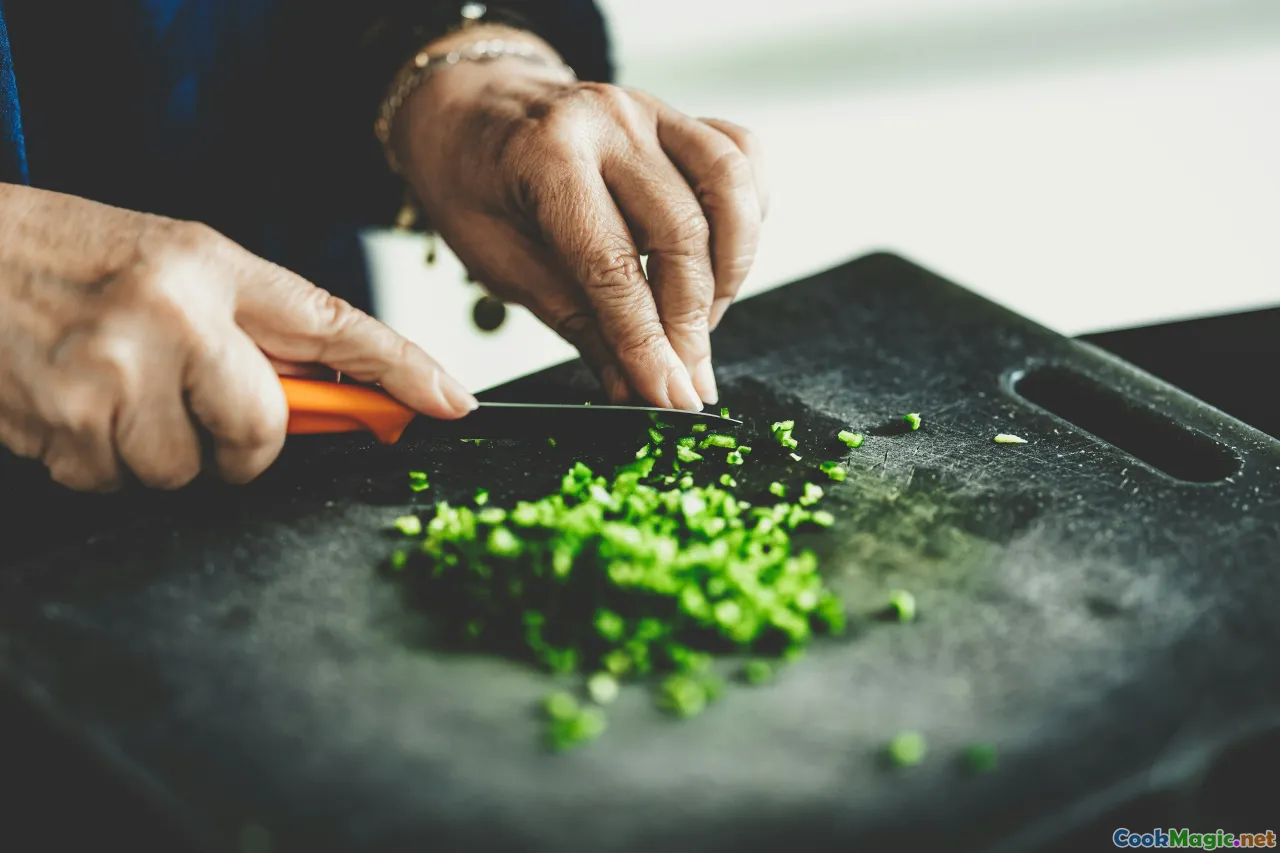How to Prepare Authentic Albanian Qifqi
9 min read Learn the authentic process of preparing Albanian Qifqi, a flavorful traditional delicacy showcasing Albania's rich culinary heritage. September 24, 2025 03:05
How to Prepare Authentic Albanian Qifqi
Nestled among the lush green valleys and rugged mountain terrains of Albania lies a culinary gem that whispers tales of tradition, resilience, and vibrant village life: Qifqi. This humble yet unforgettable delicacy embodies the essence of Albanian home cooking—simple ingredients transformed through time-honored techniques into bites that sing with flavor, history, and heartfelt comfort.
If your palate yearns to explore authentic Albanian cuisine, mastering Qifqi is a must. These small, fried rice balls are more than just a snack; they are a cultural toast describing the rich tapestry of Albanian culture, craftsmanship passed down through generations, and the rustic charms of rural life. So, grab your apron, and let’s embark on a journey to revive this traditional treasure.
The Cultural and Historical Significance of Qifqi

Qifqi hail from the southern Albanian region of Dropulli and the nearby districts, where the land sings with olive groves, citrus orchards, and hills echoing with local folk dances. Passing through these regions, one quickly senses the deep-rooted traditions reflected in their cuisine—meat dishes, sweets, and, notably, Qifqi.
Historically, Qifqi have been a staple for rural families, especially during harvest seasons or festivals. With limited access to imported ingredients, villagers relied on what was available—rice, herbs, and excess greens. Over centuries, this humble mix evolved into the beloved dish cherished today.
For locals, making Qifqi prolongs more than culinary practice; it is an act of cultural preservation, community bonding, and a nod to ancestral ingenuity during tough times.
Ingredients for Authentic Qifqi

Preparation begins with the freshest, most vibrant ingredients. Each plays a pivotal role in creating the unique aroma and texture.
- Long-grain rice: Traditionally, a good-quality, fragrant rice—such as Basmati or local mountain varieties—is preferred. It offers the perfect base, dissolving gently on the palate.
- Fresh greens and herbs: Wild or cultivated greens like spinach, Swiss chard, or nettles provide color, nutrition, and distinct flavor. parsley, dill, and mint are classic herbs that brighten the dish.
- Onions and garlic: Sautéed to embed aromatic depth.
- Eggs: Binds the mixture beautifully, adding richness.
- Salt and black pepper: Simple seasonings—crucial for enhancing the natural flavors.
- Olive oil: For frying, reflecting Albania’s rich olive traditions.
Optional hints of chili or lemon zest can add personalized twists but are not traditional.
Step-by-Step Guide to Making Authentic Qifqi

1. Preparing the Rice
Start by thoroughly rinsing the rice until the water runs clear. Cook it in boiling salted water until just tender—avoid overcooking, as the rice should remain firm enough to handle.
Once cooked, spread it out on a clean surface or tray to cool slightly. The rice should be warm, not hot.
2. Sautéing the Greens and Aromatics
In a spacious skillet, heat a drizzle of olive oil. Add finely chopped onions and garlic, sautéing until fragrant and translucent. Incorporate chopped greens, cooking until wilted and tender. Salt and pepper to taste. Allow this mixture to cool.
3. Mixing the Ingredients
In a large bowl, combine the cooled rice, sautéed greens, and freshly chopped herbs. Break an egg into the mixture and knead everything together until the mixture is cohesive but still tender—if needed, add another egg or a tablespoon of flour to help bind.
4. Forming Qifqi
With moist hands, take small scoops of the mixture—about the size of a walnut—and shape into compact balls or ovals. The goal is to achieve uniformity for even cooking.
5. Frying
Heat generous olive oil in a deep skillet over medium heat. Carefully drop in the Qifqi, turning occasionally until golden brown and crispy on all sides—approximately 3-4 minutes.
Use a slotted spoon to transfer them onto paper towels, draining excess oil.
6. Serving and Enjoying
Qifqi are best enjoyed hot, accompanied by a squeeze of fresh lemon or a side salad of ripe tomatoes and cucumbers. Their crispy exterior gives way to a tender, flavorful interior—each bite a celebration of Albanian simplicity and authenticity.
Tips for Perfect Qifqi

- Use fresh greens: More moisture and flavor make the dish more vibrant.
- Don’t skip the egg: It acts as the essential binder, ensuring the balls hold together during frying.
- Control oil temperature: Too hot, and they’ll burn; too cool, and they'll soak up excess oil.
- Maintain hand moisture: Slightly damp hands prevent the mixture from sticking.
- Experiment with herbs: While parsley and dill are traditional, some chefs add mint for a refreshing twist.
Variations and Modern Twists
While traditional Qifqi focus on purity and simplicity, contemporary cooks have introduced variations—adding crumbled feta inside for a salty punch, incorporating grated carrots for sweetness, or even baking instead of frying for a healthier option.
Yet, nothing replaces the authenticity of the original—those smelling of freshly fried greens and rice, reminiscent of sunny Albanian kitchens.
Where to Taste Authentic Qifqi in Albania
If you're fortunate enough to visit Albania, seek out small family-run taverns or roadside eateries in Dropull, Saranda, or Gjirokastër. These places still preserve the age-old recipes, offering Qifqi freshly made with local ingredients—each bite mirroring centuries of tradition. Remember, the best Qifqi are often those made with pride by folk who have inherited this craft.
Alternatively, cultural festivals celebrating Albanian heritage often feature live cooking demonstrations, where the earthy aroma of frying Qifqi welcomes visitors from afar.
Final reflections
Mastering the art of preparing authentic Albanian Qifqi is more than a culinary challenge; it is a heartfelt homage to Albanian history, land, and community spirit. The process demands patience, respect for tradition, and a love for simple yet profound flavors. With each bite, you become part of an ongoing story—one that celebrates resilience, identity, and the enduring joy of shared food.
Embrace this heritage, and let your kitchen echo with the warmth of Albanian hospitality. Bon appétit, or as they say in Albanian—Gëzuar!









